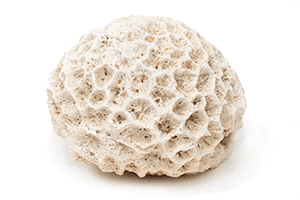Just like water and air, your body needs minerals to keep you healthy. We get most of our minerals through nutrients in food, so it’s important to know what each mineral does for your body.
What are macrominerals?
Minerals can generally be divided into two categories: macrominerals and trace minerals. Both types of minerals are equally important, but the main difference is in how much your body needs of them. You need macrominerals in a larger amount than trace minerals. Luckily, macrominerals are easily accessible from natural foods. Unfortunately, many people simply do not eat enough natural food to get all their vitamins.
Trace minerals typically include iron, manganese, copper, iodine, zinc, cobalt, fluoride, and selenium.
Types of macro minerals and their uses:
Calcium
As we all know, calcium is essential when it comes to bone and teeth formation. It also aids in blood clotting, maintaining normal muscle function and heart rhythm and keeps many enzymes in the body functioning normally.
Calcium deficiencies result in a range of diseases and conditions, including osteoporosis, hypertension and tooth decay. It is recommended that you consume between 400 and 1000mg of calcium a day through low-fat dairy products, however; nuts, tofu, shellfish, eggs, and wheat are viable sources of calcium as well.
Many people don’t consume enough calcium through their daily nutrition. This is why we suggest turning to an all-natural calcium supplement like Coral Complex 3.
Chloride
Chlorine (Cl) is an essential mineral, functioning as an important electrolyte mineral. The chloride ion participates with sodium, potassium, bicarbonate, and carbonic acid in playing a major role in water metabolism, osmosis, and acid-base balance.
Magnesium
Much like calcium and phosphorus, your body requires magnesium to help form bones and teeth. Magnesium is also necessary to keep your nerves and muscles functioning normally and to activate various enzymes.
Following calcium, phosphorus, sulfur, potassium, sodium, and chlorine; Magnesium is the seventh most abundant element present in the body. It is also closely related to calcium and phosphorus in its functions in the body. About 70 percent of magnesium is contained in the bones and teeth. The remainder of the magnesium is found in the soft tissue of the body and extracellular fluids.
Magnesium plays a major role in maintaining the electrical potential across muscle and nerve membranes. The master molecule fo the body, DNA which is concerned with protein synthesis, uses magnesium in protein formation. Magnesium is important int he storage and release of chemicals in the adenosine diphosphate/triphosphate energy system. Consequently, magnesium is stored in large quantities within the mitochondria, the powerhouse of your cells.
Phosphorus
Like calcium, phosphorus is essential for the formation of bones and teeth. It’s also vital to your energy production and is used to form nucleic acids like DNA. Phosphorus is needed for bone and tooth health just like calcium, but it’s also a vital part of metabolizing energy. Without phosphorous, your body can’t turn food into energy and strength. It also is essential to kidney and liver function. Foods high in phosphorus are usually also high in protein. Dairy, beef, chicken and even cola beverages have a high phosphorus content.
Potassium
Balancing your electrolytes requires potassium, much like sodium. Potassium is also essential for proper nerve and muscle function. Potassium and Sodium play a major role in water metabolism. Sodium is the major component of the cations of extracellular fluids. Just as calcium and magnesium interact together, sodium and potassium are closely interacting macrominerals.
Sodium
The most important electrolyte minerals in body fluids are Sodium and potassium. Sodium is necessary for maintaining your proper nerve and muscle function as well. The bulk of human sodium requirements is obtained from sodium chloride, namely table salt. The RDA for table salt varies greatly based on climate conditions, body temperature, exercise, disease conditions, and renal function. The RDA for an adult in a temperate climate is about 500 mg.
Connect with Coral LLC
For the best coral mineral supplements available, call 1-775-883-9854 or fill out the contact form online. Coral LLC products are available in your local nutrition or vitamin store, or online via Amazon. Start getting healthy today!
Learn More About Coral Calcium
